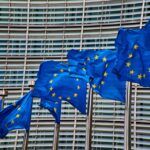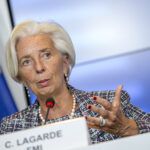The EU must shape a sporting model based on solidarity, inclusion, open competition and fairness, says a resolution adopted by MEPs on Tuesday.
With 597 votes in favour, 36 against and 55 abstentions, MEPs backed a European sporting culture aligned with the EU’s values of solidarity, sustainability, inclusion, open competition, sporting merit and fairness. MEPs therefore strongly oppose “breakaway competitions” such as the football Super League, which undermine the principles of inclusion and fairness and jeopardise the overall stability of the sporting ecosystem.
In the face of projects that jeopardise the overall stability of the sporting ecosystem, MEPs argued for a balance between the commercial interests of professional sport and its social functions, strengthening the links between grassroots and elite sport.
Building the European model from the bottom up
MEPs want to strike a balance between the commercial interests of professional sport and its social functions by strengthening the links between grassroots and elite sport. They also call for better financial redistribution and propose that sports federations establish a solidarity mechanism to ensure adequate funding for amateur and grassroots sport.
The House urges the Commission and Member States to do their utmost to encourage EU citizens, especially young people from different backgrounds, to increase their physical activity, by increasing the number of hours allocated to physical education in schools, and through a network of sport ambassadors.
Safe and equal sport
The resolution sets out the need to address gender equality and harassment in sport, in particular the pay gap and the low number of women in management and board positions. European media should therefore provide more coverage of a wider range of sports, especially women and young people.
The text also calls for protecting children from discrimination and harassment in sport by providing access to timely help, advice and protection.
In addition, national sports federations should equalise the bonuses paid to men and women, following the example of the Football Association of Ireland (FAI).
Upholding human rights and democratic principles
The text urges the authorities and sports federations and organisations to uphold human rights and democratic principles in all their actions, including when awarding the organisation of major sporting events and when choosing sponsors. MEPs insist that countries whose governments repeatedly violate fundamental rights and values should not be allowed to host major sporting events.
Statement by the speaker
Tomasz Frankowski (EPP, Poland), said: “Sport has the extraordinary power to bring people together, regardless of race, religion, gender or socio-economic status. It keeps us happy and healthy and allows us to learn throughout our lives. It also has an important weight in the economy – it accounts for almost 3% of the EU’s GDP – so it needs more visibility and action at EU level.
Frankowski called on the Commission to appoint a sports coordinator, concluding that the biggest challenge now is to “promote the European model of sport and protect it from threats such as the Super League”.







Leave a Reply